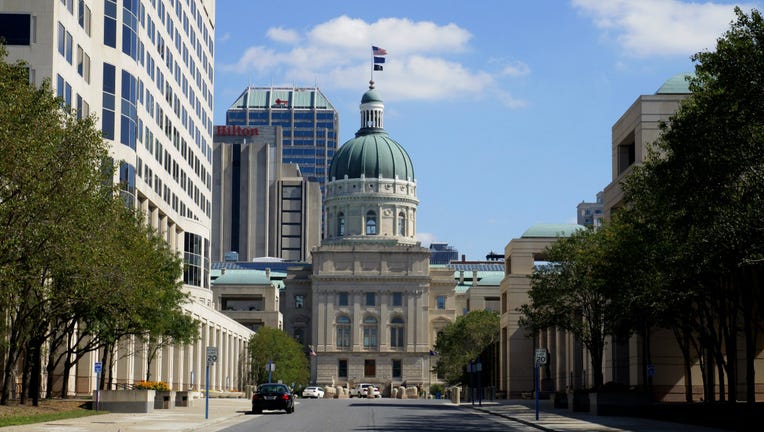Indiana gets 14 more deaths as coronavirus cases spike

Indiana State Capitol Building, as photographed from the Indiana Government Center, in Indianapolis, Indiana. (Raymond Boyd/Michael Ochs Archives/Getty Images / Getty Images)
INDIANAPOLIS - Fourteen more people have died in Indiana from coronavirus-related illnesses, increasing the state’s virus death toll to 49 as its confirmed cases surged past 2,000, state health officials said Tuesday.
Indiana’s number of confirmed cases of COVID-19, the disease caused by the virus, grew by 374, to 2,159, following corrections to the previous day’s total, the Indiana State Department of Health said. A week ago, the state had 365 confirmed cases and 12 reported deaths from COVID-19.
Five of the state’s 14 new deaths involved Indianapolis residents and four others were from Lake County. There was one death each reported from Elkhart, Decatur, Hancock, Ripley and Warren counties.
Marion County, the home of Indianapolis, had 170 of the state’s 374 new coronavirus cases reported Tuesday. Indianapolis and the seven counties surrounding it account for 68% of Indiana’s COVID-19 deaths and 63% of its confirmed cases.
For most people, the coronavirus causes mild or moderate symptoms, such as fever and cough that clear up in two to three weeks. Older adults and people with existing health problems are among those particularly susceptible to more severe illness, including pneumonia. The vast majority of people recover.
CLICK HERE FOR THE LATEST CORONAVIRUS NEWS
Tuesday’s update on the pandemic in Indiana followed Monday’s announcement by state officials that Indiana hospitals have increased the state’s intensive care unit capacity by about one-third in the past few weeks in preparation for an expected surge in coronavirus-related illnesses.
Dr. Kristina Box, the state health commissioner, said Monday that Indiana’s illness peak was still expected in mid- to late-April, but some prediction models put it later, as late as mid-May.
Gov. Eric Holcomb on Monday signed an executive order that eased medical licensing restrictions to allow retired medical professionals and those with an inactive license to practice medicine and join Indiana’s response to the pandemic.
Holcomb’s executive order allows medical professionals who do not currently hold an active license to practice medicine if they are: retired or became inactive in the last five years; hold licenses in other states; or held licenses in other states and retired or became inactive in the last five years. His order also applies to certain medical students and graduates.

